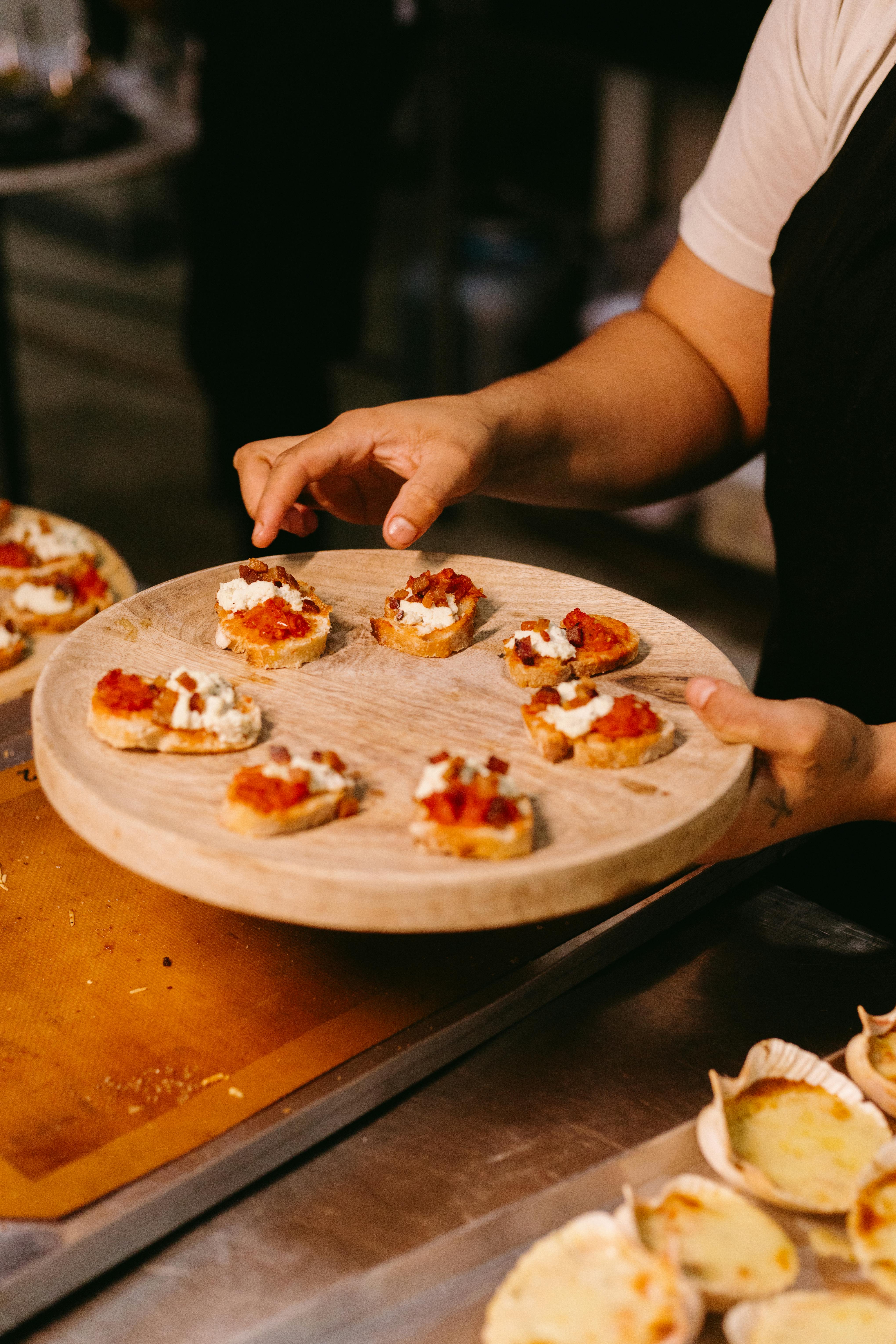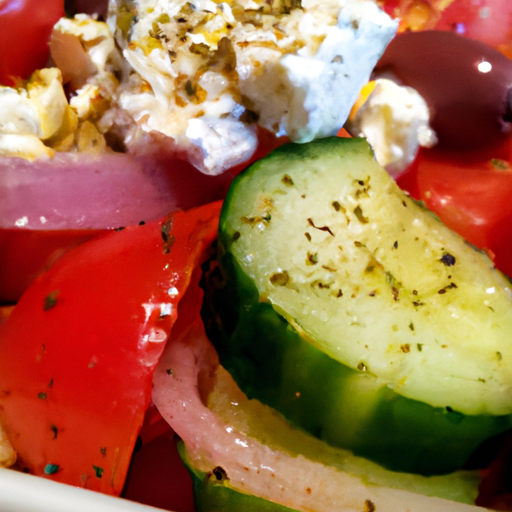Experience the rich and captivating culinary heritage of Greece as you embark on a journey that intertwines gods, myths, and food. Tastepan.com invites you to delve into the diverse world of food culture and traditions, revealing the regional cuisines and stories that make Greece’s gastronomy truly remarkable. With each bite, you’ll taste the historical tapestry of flavors, immersing yourself in a cultural experience that will leave you craving more. Get ready to explore the gods and myths behind Greece’s delicious cuisine and deepen your appreciation for its culinary treasures.

Greek Cuisine
Introduction to Greek cuisine
Greek cuisine is a revelation of flavors, colors, and textures that have been perfected over centuries. Renowned for its fresh ingredients, vibrant dishes, and healthy cooking methods, Greek cuisine is not only delicious but also holds deep cultural and historical significance. Whether you’re a seasoned foodie or someone looking to explore new tastes, the journey into Greek cuisine is bound to be an unforgettable one.
Ingredients and flavors
At the heart of Greek cuisine are the exquisite ingredients that bring dishes to life. From the sun-kissed olive groves producing golden olive oil to the abundant use of aromatic herbs and spices, Greek cooking celebrates the bountiful gifts of nature. Fresh vegetables, including tomatoes, eggplants, and bell peppers, feature prominently in Greek recipes, while legumes like lentils and chickpeas provide nourishing protein. Seafood, such as octopus, mussels, and sardines, showcase the country’s strong connection to its coastal origins.
Greek flavors are a delightful blend of sweet, savory, and tangy notes. The liberal use of citrus fruits, such as lemons and oranges, adds a refreshing acidity to many dishes. Herbs like oregano, thyme, and dill lend their distinct aromas, while spices like cinnamon and nutmeg add warm undertones. Greek cuisine also embraces the umami-rich flavors of feta cheese, Kalamata olives, and yogurt, offering a diverse taste experience that is sure to intrigue your palate.
Popular Greek dishes
Greek cuisine offers a multitude of dishes that have gained international recognition for their delectable flavors and simplicity. One such dish is Moussaka, a layered casserole of eggplant, minced meat, and creamy béchamel sauce. Spanakopita, a savory pastry filled with spinach and feta cheese, is another beloved Greek delicacy. Souvlaki, consisting of seasoned grilled meat skewers served with pita bread and tzatziki sauce, is a classic street food favorite.
No exploration of Greek cuisine is complete without enjoying a plate of freshly grilled or oven-roasted lamb, alongside traditional accompaniments like lemon potatoes and Greek salad. Dolmades, grape leaves stuffed with a savory rice and herb filling, showcase the Greek love for small, flavorful bites. And of course, no Greek meal is truly satisfying without a sweet ending, with desserts like Baklava, Galaktoboureko, and Loukoumades leaving a lasting impression on your taste buds.
Ancient Greek Food
Food in ancient Greek society
In ancient Greece, food was not just a means of sustenance but an integral part of the culture and society. Ancient Greeks believed that the gods blessed them with food, and it was their duty to honor them through feasts and offerings. Food played a vital role in religious ceremonies, social gatherings, and everyday life. The Greeks appreciated the simple pleasures of food and considered meals as an opportunity to connect with others and celebrate their common humanity.
The influence of gods and myths on ancient Greek food
Greek mythology heavily influenced the ancient Greek food culture. Gods and goddesses were believed to preside over the harvest, the seas, and the agricultural cycle. Demeter, the goddess of grain and fertility, was worshipped with offerings of fruits, grains, and bread. Dionysus, the god of wine, inspired celebrations and the indulgence of the senses. Such mythical beliefs shaped the way the ancient Greeks viewed food and the rituals associated with it.
Diet and eating habits in ancient Greece
The diet of ancient Greeks centered around simple, locally sourced ingredients. Grains, such as barley and wheat, formed the staple of their diet, often consumed in the form of bread or porridge. Fruits, vegetables, legumes, and olive oil were common additions to meals. Fish, poultry, and game meat were enjoyed occasionally, while red meat was considered a luxury. The ancient Greeks had an appreciation for moderation and balance in their diet, emphasizing the importance of consuming food in harmony with nature.

Greek Food in Mythology
Stories and myths involving food in Greek mythology
Greek mythology is replete with fascinating stories involving food. From the tale of Prometheus stealing fire from the gods to gift it to mankind, to the legend of Demeter searching for her daughter Persephone, food and its symbolism abound in these mythical narratives. The story of Demeter and Persephone, for instance, explains the cycle of seasons and the connection between the harvest and the underworld.
The role of gods and goddesses in shaping Greek culinary traditions
Greek gods and goddesses had a profound influence on shaping Greek culinary traditions. As patrons of specific foods or agriculture-related activities, they were honored through feasts and rituals. For example, the festival of Dionysia celebrated the god Dionysus, and wine was an integral part of the festivities. The deities not only provided spiritual guidance but also served as a source of inspiration for Greek cooks, fostering culinary innovation and creativity.
Greek Gods and their Food Associations
Zeus and his feast
Zeus, the king of gods, was associated with hospitality and feasting. He was believed to be the protector of guests and the enforcer of the sacred laws of hospitality. The feast of Zeus, known as the Zeus Xenia, was a celebration of this divine duty. It was customary for Greeks to offer food and drink to strangers and travelers, as a way to honor Zeus and ensure their own safety and prosperity.
Demeter and Persephone – the goddesses of grain and harvest
Demeter and her daughter Persephone held great significance in Greek mythology as the goddesses of grain and harvest. They were revered for their ability to nurture the earth, ensuring bountiful crops and sustaining life. Offerings of food, particularly grains and fruits, were made to these goddesses as a gesture of gratitude and to invoke their blessings for abundant harvests. The Eleusinian Mysteries, an important ancient religious festival, paid homage to Demeter and Persephone and celebrated the cycle of life and rebirth.
Hestia and the importance of hearth and home in Greek cuisine
Hestia, the goddess of hearth and home, played a crucial role in Greek cuisine. The hearth was the center of the household, where cooking took place and meals were shared. Hestia symbolized the warmth, hospitality, and security that hearth and home provided. Greeks would start and end meals by making offerings to Hestia, ensuring her blessings for the family. Hestia’s presence in Greek culinary traditions emphasized the importance of family, community, and the rituals associated with sharing meals.

Traditional Greek Meals
Breakfast: The Greek way
Greek breakfast is a simple yet satisfying affair, often consisting of wholesome ingredients. Yogurt, drizzled with thyme-infused honey and sprinkled with walnuts, is a popular choice. Freshly baked bread, paired with a variety of cheeses and cold cuts, offers a savory start to the day. Traditional pastries like Bougatsa, a semolina custard-filled phyllo pastry, and Tyropita, a cheese pie, are also enjoyed as breakfast treats. Greeks take their time to savor the flavors, enjoying a leisurely start to the day.
Lunch and dinner: The Mediterranean feast
Lunch and dinner in Greece are typically the main meals of the day, where family and friends gather to share a delightful feast. Mezedes, a selection of small appetizers, are often served to kickstart the meal. These can include tzatziki, taramasalata, grilled octopus, and stuffed grape leaves. The main course can feature dishes like moussaka, souvlaki, and pastitsio, served with a refreshing Greek salad on the side. Fresh fruits, such as watermelon and grapes, provide a sweet ending to the meal.
Celebratory meals and festivals
Greek cuisine holds a prominent place in celebratory meals and festivals. Easter, for instance, is a joyous occasion where families come together to enjoy a traditional feast. Spit-roasted lamb, known as “kokoretsi,” is a highlight of Easter celebrations. Other significant festivals include the Feast of St. Nicholas, where fish dishes take center stage, and the Carnival season, known for its lavish feasts and indulgent pastries. These festive meals not only bring people together but also showcase the rich culinary heritage of Greece.
Greek Ingredients and Recipes
Mediterranean staples: Olive oil and olives
Olive oil is the cornerstone of Greek cuisine, revered for its health benefits and distinct flavor profile. Greece has a long history of olive oil production, with different regions offering unique varieties and flavor nuances. Greek olive oil is characterized by its fruity, peppery, and grassy notes, adding depth and richness to dishes. Olives, both in their natural form and in various preparations, are enjoyed as a snack, a topping, or an accompaniment to meals.
Cheeses and dairy products
Greek cuisine is synonymous with its rich and flavorful cheeses. Feta, the most well-known Greek cheese, is made from sheep’s milk or a blend of sheep’s and goat’s milk. This crumbly cheese adds a tangy and salty kick to salads, pastries, and grilled dishes. Other popular Greek cheeses include Halloumi, Kefalotyri, and Graviera, each with its own distinctive taste and texture. Greek yogurt, known for its velvety smoothness, is a versatile ingredient used in both savory and sweet preparations.
Herbs and spices in Greek cuisine
Herbs and spices play a vital role in elevating the flavors of Greek dishes. Oregano is a staple herb, used in marinades, dressings, and as a finishing touch to grilled meats and roasted vegetables. Mint adds a refreshing burst of flavor to salads, lamb dishes, and desserts. Thyme, dill, parsley, and basil are commonly used herbs that contribute their own unique characteristics to Greek cuisine. Spices like cinnamon, nutmeg, and allspice are employed to infuse warmth and depth into both sweet and savory recipes.
Must-try Greek recipes
No exploration of Greek cuisine would be complete without trying some classic recipes. Spanakopita, a savory pie filled with spinach and feta cheese, is a staple in Greek households. Tzatziki, a yogurt and cucumber dip seasoned with garlic and dill, is a refreshing and versatile accompaniment. Souvlaki, marinated and grilled skewered meat, is a beloved street food that pairs perfectly with warm pita bread and tangy tzatziki. For those with a sweet tooth, revani, a moist semolina cake soaked in syrup, and loukoumades, honey-soaked fried dough balls, are irresistible indulgences.
Greek Culinary Traditions
Feasting and banquets in ancient and modern Greece
Feasting and banquets have been an integral part of Greek culinary traditions since ancient times. These elaborate meals were occasions for celebration, with food and drink flowing abundantly. Ancient banquet halls were adorned with artwork, and guests were treated to lavish displays of culinary prowess. Today, Greek hospitality continues to shine through extravagant feasts, particularly during weddings and religious celebrations. The convivial atmosphere and generosity of spirit make Greek banquets an unforgettable experience.
Greek hospitality and the concept of ‘philoxenia’
Greek hospitality, known as “philoxenia,” is deeply rooted in the country’s culinary traditions. Philoxenia encompasses the warm welcome and generous treatment extended to guests. Greeks believe in going above and beyond to ensure visitors feel welcome, comfortable, and well-fed. From offering a glass of ouzo to start a conversation to serving traditional dishes made with love, Greek hospitality ensures that every guest feels like a cherished member of the family.
The significance of food in Greek social gatherings
Food holds immense significance in Greek social gatherings, fostering a sense of community and connection. From casual get-togethers with friends to formal celebrations, Greek meals serve as a catalyst for bonding and storytelling. Sharing a meal is seen as an act of kinship, an opportunity to create lasting memories, and a chance to honor the connections forged through friendship and family ties. It is through these shared experiences that the true essence of Greek cuisine and culture comes alive.
Gastronomic Tourism in Greece
Exploring Greece through its cuisine
Greece offers a treasure trove of culinary delights waiting to be discovered. Gastronomic tourism provides a unique opportunity to explore the country’s rich food culture, diverse regional cuisines, and the breathtaking landscapes that inspire them. From the sun-drenched islands of the Aegean to the rugged mountains of Northern Greece, every region offers its own distinct flavors and culinary traditions. Exploring local markets, visiting traditional tavernas, and participating in cooking classes are just a few ways to immerse yourself in the vibrant world of Greek cuisine.
Food tours, workshops, and culinary experiences in Greece
Food tours and workshops have become increasingly popular among travelers seeking an authentic and immersive experience in Greece. These tours provide an opportunity to delve deeper into the country’s culinary heritage, learning directly from local chefs and artisans. Whether it’s joining a fishing expedition to catch fresh seafood or participating in a traditional bread-making workshop, these culinary experiences offer a hands-on approach to understanding Greek cuisine. By engaging with locals and embracing their traditions, visitors can forge connections that extend beyond the plate.
Modern Greek Cuisine
Evolution and fusion of Greek cuisine
Greek cuisine has evolved over time, embracing influences from various cultures and culinary traditions. The invasions, trades, and migrations that Greece has experienced throughout history have left their mark on its gastronomy. Byzantine, Ottoman, and Venetian influences have all contributed to the rich tapestry of flavors found in modern Greek cuisine. Traditional recipes have been reinvented and reimagined, marrying old-world recipes with contemporary techniques and global ingredients.
Influence of Greek cuisine on Mediterranean and international culinary scenes
Greek cuisine has had a profound impact on the culinary world, particularly within the Mediterranean region. The emphasis on fresh, seasonal ingredients, olive oil, and simple preparation techniques has inspired chefs and food enthusiasts alike. Greek flavors and ingredients, such as feta cheese, lemon, and herbs, have become synonymous with Mediterranean cooking. Additionally, Greek cuisine has gained international recognition through popular dishes like souvlaki and tzatziki, leading to the establishment of Greek restaurants and the integration of Greek flavors in global cuisine.
Reimagining traditional Greek dishes
While Greek cuisine is steeped in tradition, it also offers endless possibilities for creative reinvention. Chefs and home cooks alike have taken traditional Greek dishes and given them a contemporary twist, incorporating innovative ingredients and techniques. From trendy fusion restaurants serving Greek-Mexican burritos to modern reinterpretations of classic dishes, there is a vibrant and dynamic culinary scene emerging in Greece. These modern interpretations breathe new life into Greek cuisine while paying homage to its roots.
Conclusion
The enduring legacy of Greek culinary heritage
Greek cuisine stands as a testament to the enduring legacy of ancient traditions and the celebration of flavorful, wholesome ingredients. The deep connection between food, culture, and spirituality in Greece has shaped a culinary heritage that continues to captivate and inspire. From the mythological gods and goddesses to the Mediterranean landscapes that provide a bounty of ingredients, Greek cuisine tells a story steeped in tradition, mythology, and the rich history of the region.
Preserving and promoting Greek food culture
Preserving and promoting Greek food culture is of paramount importance to ensure its continued vitality. Efforts are being made to safeguard traditional recipes, techniques, and ingredients, ensuring they are passed down through generations. Organizations, such as the Hellenic Gastronomy Center, work towards researching, documenting, and promoting Greek culinary traditions. Additionally, initiatives like gastronomic tourism provide economic opportunities for Greek communities while fostering an appreciation for the country’s unique food culture.
As you delve into the diverse world of Greek cuisine, you embark on a culinary journey that transcends time and place. From ancient rituals and myths to modern interpretations and fusion creations, the flavors and stories of Greek cuisine are sure to leave a lasting impression. So, take a leap into the vibrant realm of Greek gastronomy and allow your taste buds to savor the rich heritage and tantalizing flavors that Greece has to offer. Opa!

